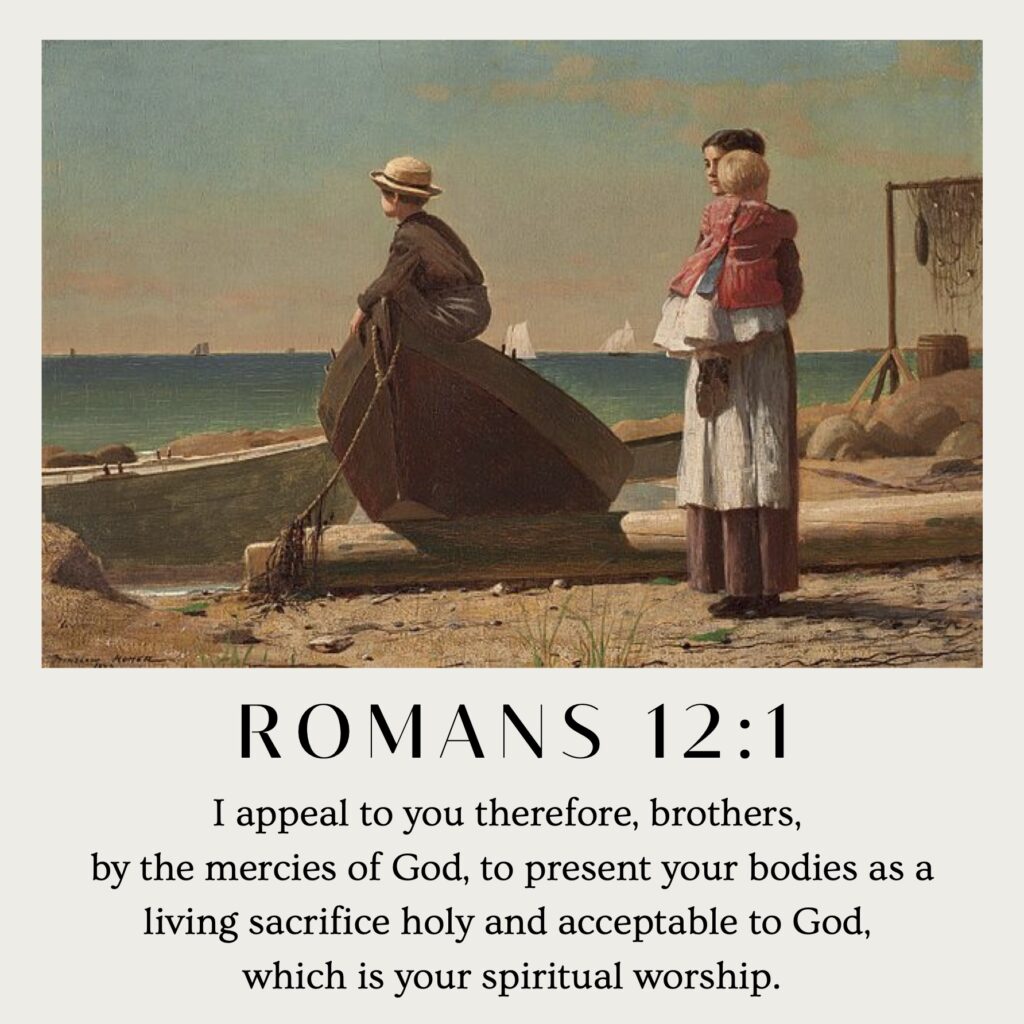by Jessamyn Rains

“I appeal to you therefore, brothers, by the mercies of God, to present your bodies as a living sacrifice, holy and acceptable to God, which is your spiritual worship” (Romans 12:1).
We bring our bodies to the altar; we offer them to God.
And then, we go on living.
We go on eating, drinking, breathing, sleeping, and working. All our human faculties are deeply engaged in life: our emotions, minds, and bodies go on functioning as they did before.
We have the same mundane realities, and in many cases, the same struggles.
So what has changed?
And what exactly is the sacrifice?
The difference is that now, instead of living for ourselves, our purposes, agendas, and happiness, we live for God’s glory.
The difference is that now, instead of directing our own lives according to our own wisdom and inclination, we give our lives over to God to ultimately direct and redirect us according to His will.
Though we have relinquished control to God, we don’t therefore become passive. We don’t sit on the altar waiting for fire to consume us. We don’t cease living, nor do we stifle our humanity.
Instead, we offer all of our doing, being, thinking, and working to God as an act of worship.
Jesus tells us that “it is more blessed to give than to receive” and that “he who loses his life for [Christ’s] sake will find it.” When we offer ourselves to God as an act of worship, we receive much more than we give.
So what do we actually receive in this sacrifice? One of the things we receive is freedom: freedom from the tyranny of sin, from our selfish desires, and from the need to control the outcomes of all our hopes and dreams.
We no longer have to prove anything to anyone or to earn anybody’s love: We belong to God, body and soul, and we are already eternally loved by Christ, who laid His own life down as a sacrifice for us.
Truly, it is more blessed to give than receive. For in the act of sacrifice and worship to God, we receive an identity, a place, and peace that is beyond all understanding.
